Macro-Finance Salon (No. 106): The RMB Exchange Rate and Macroeconomic Status Quo
2018-11-07 IMI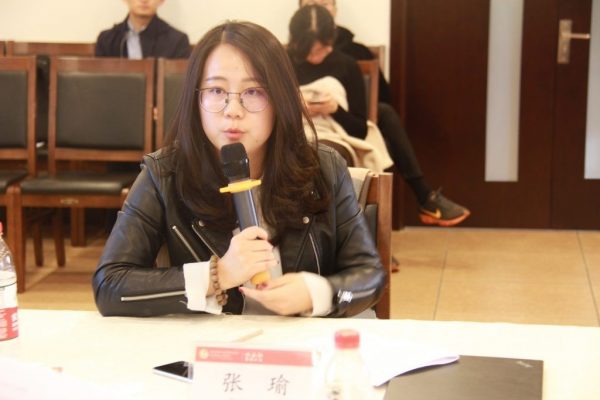 (Zhang Yu)
After briefing the background, Tu Yonghong, Dai Wensheng, Zhang Lu, Li Gongfu, and Chang Ming successively pointed out the reasons for the depreciation of the RMB since the middle term of this year; the current view, definition of the so-called "depreciation expectation", and whether it exists, and finally what to consider in the three-dimensional perspective of exchange rate, foreign exchange reserve, and monetary policy independence; the differences between market's worries towards "7" benchmark and that of 2017 in terms of macro-micro background and influence; how the impact of the Sino-US trade friction change China’s current account's surplus; thoughts on the relationship between exchange rate and industries; and discussion and reflection on the feasibility of transforming dependence on foreign demand-oriented to domestic demand-oriented.
(Zhang Yu)
After briefing the background, Tu Yonghong, Dai Wensheng, Zhang Lu, Li Gongfu, and Chang Ming successively pointed out the reasons for the depreciation of the RMB since the middle term of this year; the current view, definition of the so-called "depreciation expectation", and whether it exists, and finally what to consider in the three-dimensional perspective of exchange rate, foreign exchange reserve, and monetary policy independence; the differences between market's worries towards "7" benchmark and that of 2017 in terms of macro-micro background and influence; how the impact of the Sino-US trade friction change China’s current account's surplus; thoughts on the relationship between exchange rate and industries; and discussion and reflection on the feasibility of transforming dependence on foreign demand-oriented to domestic demand-oriented.
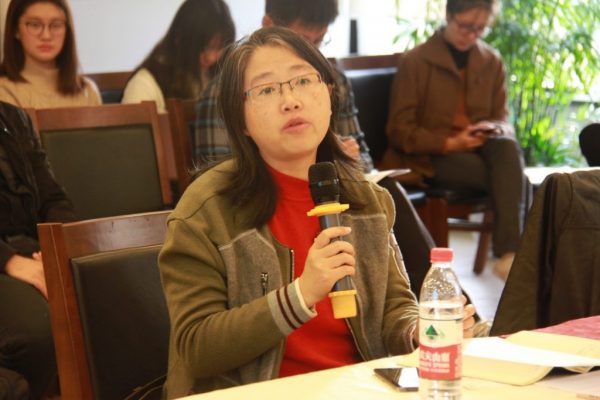 (Tu Yonghong)
(Tu Yonghong)
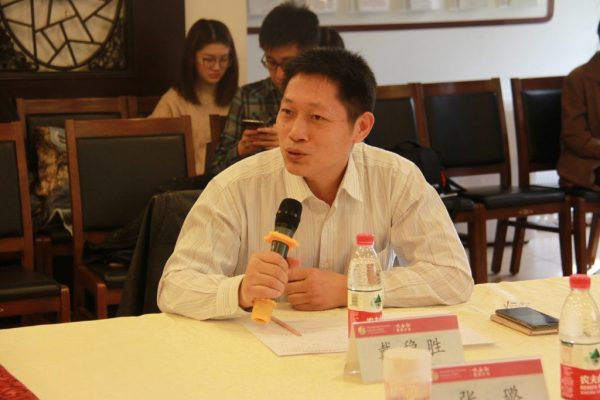 (Dai Wensheng)
(Dai Wensheng)
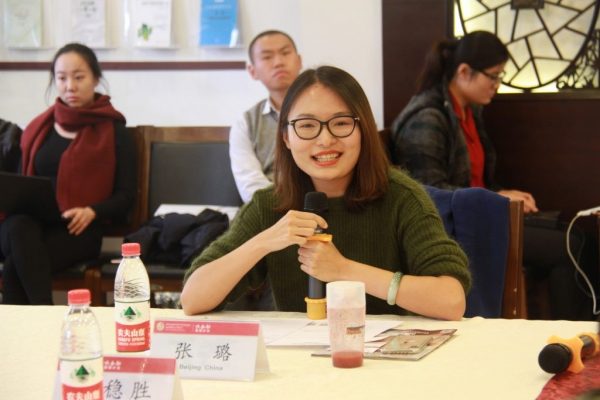 (Zhang Lu)
(Zhang Lu)
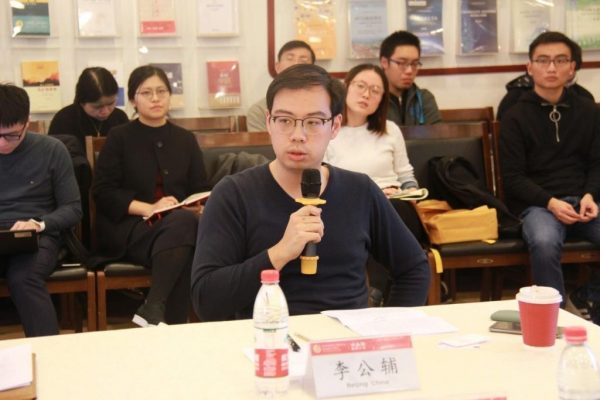 (Li Gongfu)
(Li Gongfu)
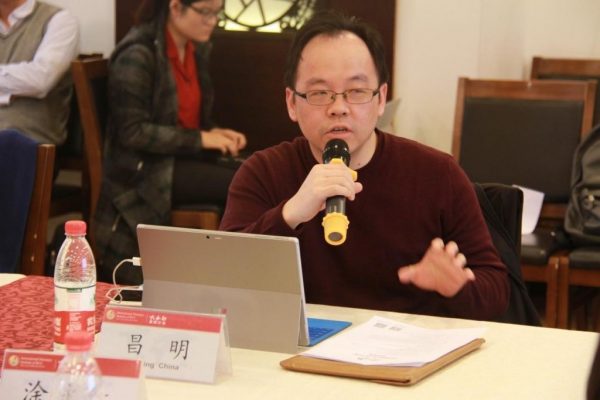 (Chang Ming)
Tu Yonghong pointed out that despite the frequent deficit in China's current account at the beginning of this year, it was more of a result due to seasonal factors. After that, the import and export gradually picked up paces, and the uncertainty brought about by the trade war is also shrinking. Therefore, the pressure of depreciation is not so strong as it seems. Dai Wensheng believed that the implementation of comprehensive policies to prevent financial risks by de-leveraging and supply-side reforms has led to a downturn in China's economic environment, but the depreciation expectation is not obvious so the central bank has much room to maneuver via financial instruments. Zhang Lu mentioned that the world's major currencies have been depreciating in the context of the strong appreciation of the US dollar for the past two years. The depreciation of the renminbi has not caught up with the average depreciation level of major currencies so the market has accumulated much depreciation expectations. Chang Ming believed that improving the RMB exchange rate system is a necessary prerequisite for maintaining the stability of the RMB exchange rate and is of great significance. Li Gongfu interpreted the performance of the recent market from the perspective of traders. The guests expressed their opinions on several topics and carried on new topics and discussions.
(Chang Ming)
Tu Yonghong pointed out that despite the frequent deficit in China's current account at the beginning of this year, it was more of a result due to seasonal factors. After that, the import and export gradually picked up paces, and the uncertainty brought about by the trade war is also shrinking. Therefore, the pressure of depreciation is not so strong as it seems. Dai Wensheng believed that the implementation of comprehensive policies to prevent financial risks by de-leveraging and supply-side reforms has led to a downturn in China's economic environment, but the depreciation expectation is not obvious so the central bank has much room to maneuver via financial instruments. Zhang Lu mentioned that the world's major currencies have been depreciating in the context of the strong appreciation of the US dollar for the past two years. The depreciation of the renminbi has not caught up with the average depreciation level of major currencies so the market has accumulated much depreciation expectations. Chang Ming believed that improving the RMB exchange rate system is a necessary prerequisite for maintaining the stability of the RMB exchange rate and is of great significance. Li Gongfu interpreted the performance of the recent market from the perspective of traders. The guests expressed their opinions on several topics and carried on new topics and discussions.
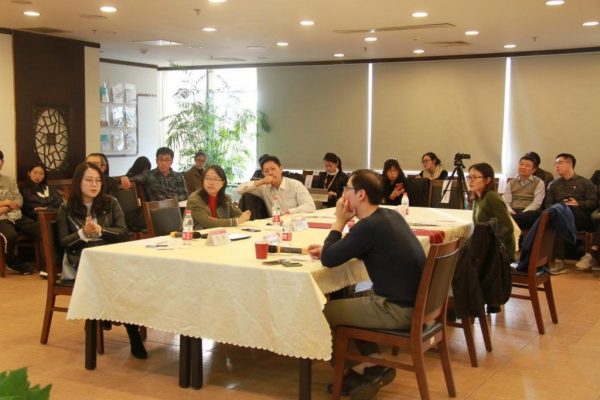 (Salon Snapshot)
The Macro-Finance Salon is a high-level academic salon jointly initiated and established by both the IMI and the Department of Monetary and Finance at the School of Finance in RUC, which is divided into four series: "policy experts", "academic masters", "industry elites" and "young scholars". The salon places emphasis on China's reality and the international frontier. It has built a high-level, professional and open academic exchange platform to promote the discipline of " wholistic finance" in the new era and to carry out relevant theories, policies and strategy research. Theoretically, the concept of " wholistic finance" derives from combining macro and micro financial theory, an idea proposed and advocated by Professor Huang Da. Conceptually, it derives from the systematic thinking of finance and the real economy as an inseparable and organic whole. Chen Yulu, deputy governor of the People's Bank of China, systematically demonstrated the basic connotation and methodology of "wholistic finance" in "The Outline of Wholistic Finance", laying the theoretical and empirical foundation for "wholistic finance", which is conducive to promoting long-term economic growth and enhancing national competitiveness.
(Salon Snapshot)
The Macro-Finance Salon is a high-level academic salon jointly initiated and established by both the IMI and the Department of Monetary and Finance at the School of Finance in RUC, which is divided into four series: "policy experts", "academic masters", "industry elites" and "young scholars". The salon places emphasis on China's reality and the international frontier. It has built a high-level, professional and open academic exchange platform to promote the discipline of " wholistic finance" in the new era and to carry out relevant theories, policies and strategy research. Theoretically, the concept of " wholistic finance" derives from combining macro and micro financial theory, an idea proposed and advocated by Professor Huang Da. Conceptually, it derives from the systematic thinking of finance and the real economy as an inseparable and organic whole. Chen Yulu, deputy governor of the People's Bank of China, systematically demonstrated the basic connotation and methodology of "wholistic finance" in "The Outline of Wholistic Finance", laying the theoretical and empirical foundation for "wholistic finance", which is conducive to promoting long-term economic growth and enhancing national competitiveness.
